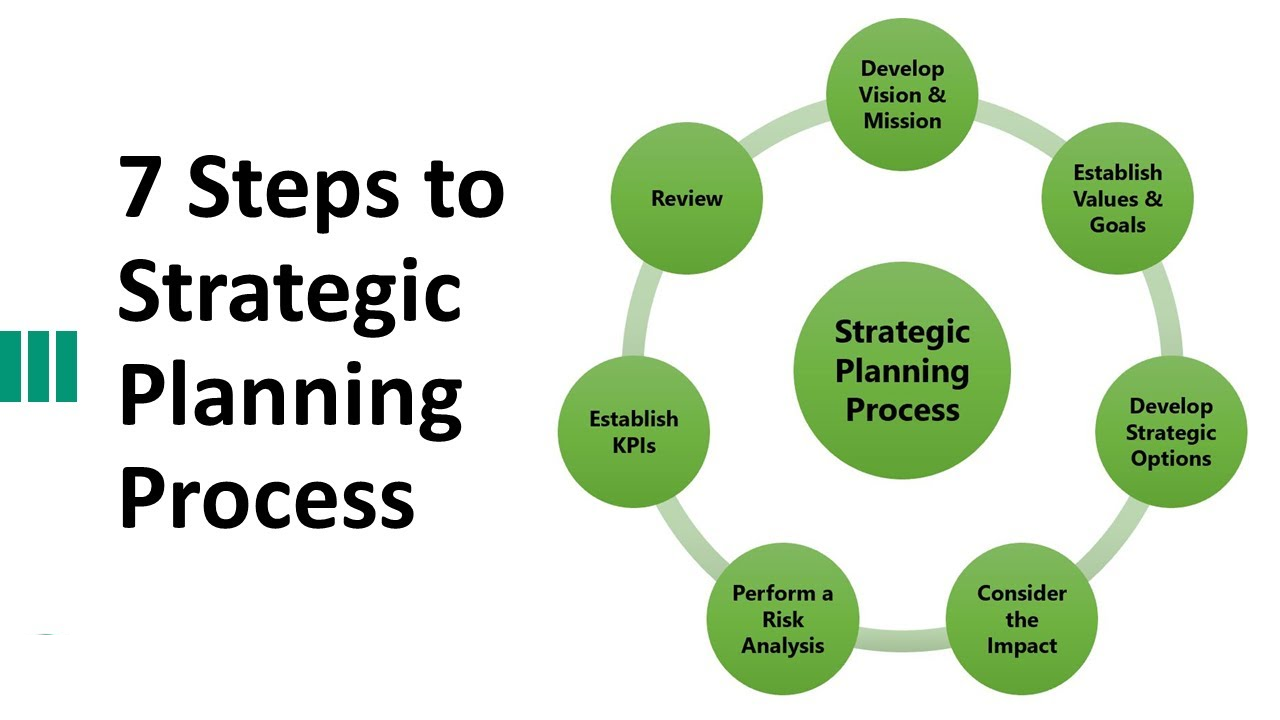Diploma Programs

Our Diploma degree based on completing FOUR modules.
When choosing any three of the modules, you will be receiving LondonUni diploma, and you will be one step away from gaining master’s degree in business and leadership.
- Our face-to-face teaching courses includes strategy, accounting and finance, business strategy, capital market, digital government, governance, education managements, future studies, Investments, managing institutional funds, Marketing, sports managements, strategy planning.
- You will be guided by our experts to reach your goal, to be able to make informed business decisions, and lead with confidence and influence in your contemporary business context, you also will have better understanding of your business environment and challenges to enhance your organisation’s competitive advantage.
- Above all, you will gain global professionals and a certificate of Diploma leading to Master from the LondonUni.
Note:
This diploma modules are based on face-to-face teaching in London, we may accept some of the modules delivered on-line.
By completing the diploma followed by thesis will gain to Master degree.
Following Master’s degree, you can continue one farther year with extended thesis, you can gain PhD degree awarded by LondonUni.
| Modules |
|---|
| 01. Accounting and Finance |
| 02. Business Strategy |
| 03. Capital market products |
| 04. Digital governance |
| 05. Diversity and Governance |
| 06. Education management’s |
| 07. Future Studies |
| 08. Governments policies |
| 09. Investments |
| 10. IT and Artificial intelligence |
| 11. Leadership |
| 12. Managing institutional funds |
| 13. Marketing and Strategy |
| 14. Resources Managements and the Art of Negotiations |
| 15. Sports science & Management |
| 16. Strategic Planning |
| 17. Upcoming courses |
Modules:
- Accounting and Finance
- Business Strategy
- Capital market products
- Digital governance
- Diversity and Governance
- Education management’s
- Future studies
- Governments policies
- Investments
- IT and Artificial intelligence
- Leadership
- Managing institutional funds
- Marketing and Strategy
- Resource Management
- Sports managements
- Strategic Planning
1. Accounting and Finance

-
01. Accounting and Finance
Accounting and Finance is the global language of business. Through financial reporting, businesses communicate their financial position and performance and reveal their main strengths and weaknesses.
This course will show you how to review and interpret financial information and how to identify the key value drivers of financial success.
You will also learn how to use managerial accounting tools to help build more effective business cases.
Upon completion of the programme, you will become more confident in the language of finance, build competency in reviewing and communicating financial information and improve your ability to influence resources and articulate business impact with your colleagues and stakeholders.
This course will:
* Build your confidence in speaking the financial language of your business and improve your ability to communicate financial priorities, measures, and issues to benefit the business
* Learn how to read and interpret financial statements from a user’s perspective
* Appreciate the difference between profit and cash generation and how the two are not the same
* Learn about the three key financial drivers of success and how business use them to deliver shareholder returns.
* Learn how to best articulate the financial side of a business case and how to provide constructive feedback to investment appraisal proposals
*Appreciate the choice and judgement inherent in the world of accounting and finance and why that matters.
* Develop business leaders who can confidently communicate in the language of finance and appreciate its nuances
* Develop the competency among your non-finance leaders to read and interpret key financial information and how their function contributes towards your organisation’s financial goals
* Engage non-finance leaders in a genuine dialogue about financial priorities
* Develop business leaders who can provide constructive feedback on financial proposals
2. Business Strategy

-
02. Business Strategy
Business Strategy is vital for any company seeking to grow its business in a strategic manor. To develop business strategy and then implementing it is not easy task, this course with address the practical methodology and show you how to develop business strategy and then implementing it the easy way.
A business strategy must consider a few factors including the market, competitors, and the business environment, as well as the company's structure, strengths, and weaknesses. It should also be flexible enough to handle change.
Planning and preparing a business strategy therefore requires strong skills in strategic planning and business analysis, as well as a good understanding of functions like marketing, sales, and distribution.
Business strategy involves covering off the basics, as well as today's world is in continual change. therefore, any business strategy must be Flexible, Adaptable, and Secured in up-to-date research.
This course will also cover business strategies mandates includes, Leadership vision, environments, culture, strategic marketing plane, good managements ethics, governance and above all how to coordinate all those elements into successful business Strategists
3. Capital market products

-
03. Capital market products
Capital markets are the exchange system platform that transfers capital from investors who want to employ their excess capital to businesses that require the capital to finance various projects or investments.
Capital markets are a essential of the global economy. They provide an arena in which investors looking to invest saved funds in return for compensation. They can channel their capital towards people and businesses who need the capital now to expand. This is the root of how a capitalist, market-based economy grows.
There are many different capital market products:
Equity securities
Commodities
Debt securities
Foreign exchange
Derivatives
The course will examine all the capital market products and apply its applications and how its traded in different markets and exchanges. Some of these are centralized, such as equity securities, foreign exchange, and some derivative securities.
Others are devolved and traded between market participants without an exchange or a broker, such as debt securities, commodities, and other derivatives.
Derivatives can get complicated, but they represent a huge market as well. They are versatile and can be structured and created to tailor features such as risk and return for other securities.
The course will also be examining Capital markets solutions such as:
Foreign exchange
Equities
Credit
Digital Solutions
Regulations
4. Digital governance

-
04. Digital governance
Digital Governance is a multidisciplinary course that explores the design, management and regulation of information and communication technologies (ICTs) in the public sector. The course focuses on the development of policies and strategies for ensuring the responsible use of ICTs for government functions and services, with a particular emphasis on the protection of citizens' rights, privacy, and security.
This course will cover a range of topics, including:
Overview of digital governance and its relevance to public sector organizations
Legal and ethical frameworks for digital governance
Digital transformation in the public sector
e-Government and e-Services
Cybersecurity and data protection
Access to information and freedom of expression online
Artificial intelligence and governance
Blockchain technology and its applications in the public sector
Digital economy and trade
International cooperation on digital governance.
Throughout the course, students will have the opportunity to engage in hands-on activities and case studies to apply the concepts learned to real-world scenarios. The course is designed for students with backgrounds in computer science, law, public policy, political science, and related fields. By the end of the course, students will have a comprehensive understanding of digital governance and its critical importance in the public sector.
5. Diversity and Governance

-
05. Diversity and Governance
The Diversity and Governance course explores the intersection of diversity and representation in the design, management, and regulation of organizations and institutions. The course is interdisciplinary, drawing on perspectives from sociology, political science, business, and law, among other fields.
The course covers a range of topics including:
Understanding diversity and inclusion in organizations
The history of diversity and representation in governance
The role of diversity in decision-making and problem-solving
The impact of diversity on organizational culture and performance
Best practices for promoting diversity and inclusion in governance
The role of law and policy in promoting diversity and representation
The challenges and opportunities of diversity in global governance.
Throughout the course, students will engage in discussions, case studies, and hands-on activities to apply the concepts learned to real-world scenarios. The course is designed for students with an interest in diversity and representation in organizations, as well as those seeking to understand the critical role that diversity plays in governance. By the end of the course, students will have a comprehensive understanding of the importance of diversity and representation in governance and the strategies for promoting it.
6. Education management’s

-
06. Education management’s
Education Management is a course that focuses on the design, implementation, and evaluation of educational programs and systems. The course is designed for students who are interested in pursuing careers in education administration, policy, and leadership.
The course covers a range of topics, including:
Overview of education systems and policies
The role of leadership in education management
Curriculum development and evaluation
Instructional design and delivery
Assessment and evaluation of student learning
Resource management in education
School-community relationships and stakeholder engagement
Diversity, equity, and inclusion in education
The use of technology in education management
International perspectives on education management.
Throughout the course, students will engage in case studies, hands-on activities, and group projects to apply the concepts learned to real-world scenarios. The course is interdisciplinary, drawing on perspectives from education, business, and public policy, among other fields. By the end of the course, students will have a comprehensive understanding of the key concepts, theories, and best practices in education management and will be prepared to lead effective change in education programs and systems.
7. Future studies

-
07. Future Studies
Future Studies is a course that focuses on the analysis of current trends and the development of scenarios for the future. The course is interdisciplinary, drawing on perspectives from social sciences, technology, and business, among other fields.
The course covers a range of topics, including:
Introduction to future studies and its methodology
The study of trends and their impact on society and the environment
Scenario planning and the development of alternative futures
The role of technology in shaping the future
Global trends and their impact on business, society, and the environment
Ethics and values in future studies
The future of work and the workforce
The future of energy, food, and water systems
Climate change and its impact on the future
Foresight and innovation.
Throughout the course, students will engage in group projects, simulations, and hands-on activities to apply the concepts learned to real-world scenarios. The course is designed for students who are interested in understanding the factors that shape the future and who want to develop the skills to analyze and develop scenarios for the future. By the end of the course, students will have a comprehensive understanding of future studies and its applications and will be prepared to use this knowledge to inform decision-making and strategy in a variety of fields.
8. Governments policies

-
08. Governments policies
Government Policies is a course that explores the design, implementation, and evaluation of public policies at the national, state, and local levels. The course is interdisciplinary, drawing on perspectives from political science, economics, sociology, and law, among other fields.
The course covers a range of topics, including:
The role of government in policy-making
The policy-making process and its actors
The impact of interest groups and lobbying on policy
Public opinion and its impact on policy
The role of media in shaping public opinion and policy
Budgeting and financing of public policies
Implementation of public policies and program evaluation
The impact of policies on marginalized communities and equality
International and comparative perspectives on policy-making
The role of technology in shaping policy and governance.
Throughout the course, students will engage in case studies, group projects, and hands-on activities to apply the concepts learned to real-world scenarios. The course is designed for students who are interested in understanding the role of government in shaping public policy and who want to develop the skills to analyze and evaluate policies. By the end of the course, students will have a comprehensive understanding of government policies and their impact on society and will be prepared to use this knowledge to inform policy-making and advocacy efforts.
9. Investments

-
09. Investments
Investment has become essential for our survival, manly because the money has lost its value, and unless we invest our money we lose it, as for governments and institutions investment is the lifeline to its survival.
Short-term investments like high-yield savings accounts or money market mutual funds can help you earn more on your savings while you work towards a big purchase such as a car or a down payment on a house
Investors have a wide range of investment products to choose from, each with their own benefits and drawbacks. Here we look at the main types of investments available and what to expect from them.
The course will be examining popular type of investments, like shares, but a more popular way to invest in them is indirectly through an investment fund. This is where the money is pooled with other investors and spread across a variety of different investments, helping to reduce risk. There are many ways to access investment funds, such as through Individual Savings Accounts (ISAs) and workplace pensions.
Types of Investments
Stocks.
Bonds.
Mutual Funds and ETFs.
Bank Products.
Options.
Annuities.
Retirement.
Saving for Education.
Pension
Trust
Endowments
Waqf
Insurance
with this course you will:
Gain fresh perspectives and insights from world-class faculty Narayan Naik and Stephen Schaefer to select individual investment instruments, evaluate strategy and measure performance.
Make better decisions. Gain a deep understanding of the investment process and explore the latest techniques with real-world case studies.
Minimise the effects of market volatility on your portfolio. Understand risk management and achieve greater returns.
Optimise your portfolio and achieve maximum returns. Explore alternative asset classes, such as real estate and commodities.
Build an in-depth knowledge of fixed income and derivative instruments.
Ensure effective performance evaluation using appropriate measurements and benchmarking.
10. IT and Artificial intelligence

-
10. IT and Artificial intelligence
IT and Artificial Intelligence (AI) is a course that explores the integration of AI technologies in the development of information systems and business processes. The course is interdisciplinary, drawing on perspectives from computer science, engineering, business, and social sciences, among other fields.
The course covers a range of topics, including:
Overview of AI technologies and their applications
Ethics and values in AI development and deployment
Machine learning algorithms and their applications
Natural language processing and its applications
Computer vision and its applications
The role of AI in decision-making and problem-solving
Integration of AI technologies in business processes and information systems
The impact of AI on the workforce and employment
The role of government in regulating AI
The future of AI and its impact on society.
Throughout the course, students will engage in hands-on activities, case studies, and group projects to apply the concepts learned to real-world scenarios. The course is designed for students who are interested in understanding the integration of AI technologies in information systems and business processes and who want to develop the skills to design and deploy AI solutions. By the end of the course, students will have a comprehensive understanding of the key concepts, technologies, and best practices in IT and AI and will be prepared to use this knowledge in a variety of professional settings.
11. Leadership

-
11. Leadership
Leadership is a course that explores the theories, principles, and practices of effective leadership. The course is interdisciplinary, drawing on perspectives from psychology, sociology, management, and business, among other fields.
The course covers a range of topics, including:
Theories of leadership and their application
Trait, behavioral, situational, and transformational theories of leadership
Ethical and moral dimensions of leadership
The role of emotional intelligence in leadership
Communication skills and their impact on leadership effectiveness
Decision-making and problem-solving in leadership
Team building and conflict resolution
Managing diversity and inclusion in organizations
Organizational culture and its impact on leadership
The role of leadership in creating organizational success.
Throughout the course, students will engage in hands-on activities, case studies, and group projects to apply the concepts learned to real-world scenarios. The course is designed for students who are interested in understanding the theories, principles, and practices of effective leadership and who want to develop the skills to lead organizations and teams effectively. By the end of the course, students will have a comprehensive understanding of the key concepts, theories, and best practices in leadership and will be prepared to use this knowledge in a variety of professional settings.
12. Managing institutional funds

-
12. Managing institutional funds
Enhance your returns and reduce financial risk, that what is successful fund manger do. Funds management is the overseeing and handling of a financial institution's cash flow. The fund manager ensures that the maturity schedules of the deposits coincide with the demand for loans. To do this, the manager looks at both the liabilities and the assets that influence the bank's ability to issue credit.
A fund manager is responsible for implementing a fund's investment strategy and managing its trading activities. They oversee mutual funds or pensions, manage analysts, conduct research, and make important investment decisions.
This course will:
Give you fresh perspectives and insights of individual investment instruments, evaluate strategy and measure performance.
Make better decisions. Gain a deep understanding of the investment process and explore the latest techniques with real-world case studies.
Minimise the effects of market volatility on your portfolio.
Understand risk management and achieve greater returns.
Optimise your portfolio and achieve maximum returns.
Explore alternative asset classes, such as real estate and commodities.
Build an in-depth knowledge of fixed income and derivative instruments.
Ensure effective performance evaluation using appropriate measurements and benchmarking.
13. Marketing and Strategy

-
13. Marketing and Strategy
Marketing and Strategy is a course that explores the development and implementation of marketing and business strategies. The course is interdisciplinary, drawing on perspectives from marketing, economics, psychology, and business, among other fields.
The course covers a range of topics, including:
The role of marketing in creating value for organizations and customers
Consumer behavior and its impact on marketing strategies
Segmentation, targeting, and positioning
Product development and management
Brand management and brand equity
Pricing strategies and tactics
Distribution and channel management
Promotion and advertising strategies
Digital marketing and its impact on traditional marketing
The role of strategy in creating competitive advantage.
Throughout the course, students will engage in hands-on activities, case studies, and group projects to apply the concepts learned to real-world scenarios. The course is designed for students who are interested in understanding the development and implementation of marketing and business strategies and who want to develop the skills to create value for organizations and customers. By the end of the course, students will have a comprehensive understanding of the key concepts, theories, and best practices in marketing and strategy and will be prepared to use this knowledge in a variety of professional settings.
14. Resources Managements and the Art of Negotiations

-
14. Resources Managements and the Art of Negotiations
We are required to negotiate and influence others in virtually every interpersonal and organisational situation we encounter.
We are constantly required to deal with the difficult situations that arise from differences of opinion with and between various stakeholders.
It is therefore no surprise that key models of strategic management and leadership effectiveness consistently identify negotiating and influencing skills as critical for individual and organisational success. This highly practical programme in Effective Negotiation Skills will provide you with frameworks, techniques, and approaches with which you can manage differences of opinion and contrasting interests to arrive at equitable solutions and meaningful outcomes that maintain, and in many instances enhance, existing work relationships.
This course will focus on the practical application of the recourses managements and its characteristics.
The programme uses a variety of techniques including face-to-face debating, case studies and experiential exercises to introduce you to several key frameworks, and to enable you to: analyse and prepare for both formal and informal negotiations; formulate appropriate interpersonal strategies; manage the processes of interaction; and where possible, to arrive at beneficial outcomes for all stakeholders.
Professionals across a variety of departments with significant negotiation responsibilities are encouraged to apply.
Your organisational situation is ideally defined by some or all the following characteristics.
This course will:
Managements with responsibility for multiple tasks
ambiguous or overlapping roles and goals
difficultly in measuring employee performance
high levels of uncertainty and change
decisions involving multiple stakeholders.
Formulate an effective negotiating strategy
Embed reliable and well-established negotiating techniques that consistently deliver positive results.
Identify common sources of conflict at work and how to resolve them
Develop techniques and tactics for dealing with challenging people
15. Sports science & Management

-
15. Sports science & Management
The scientific study of exercise, health, and sport Managements
What you’ll learn
Whether you dream of managing your favourite football club or want to get more local people involved in sport, a sports science managements degree could help you achieve those dreams.
Sports science & Managements degrees take a behind-the-scenes look at sport, exercise and health, coaching, management, the courses will cover exercise physiology to the relationship between sport and the media.
You’ll develop an understanding of human responses to sport and exercise. You should know how performance can be enhanced, monitored and analysed, and about the health benefits of physical activity, as well as the impact on the body. You will understand coaching processes and sports management.
How you’ll learn
Sports technology, exercise physiology and sports psychology, above all sports managements wither in Football or any other sports. courses have a heavy emphasis on managements, sports development, or coaching.
Entry Important
Attendees will expect you to know biology, chemistry, maths, and physics at rinseable level.
What job can you get?
You will be qualified for a career in sports coaching, management, and administration. Managements support for professional from highly experienced sports coaches and managements. You will also learn business skills that will benefit freelance work and full employment sports managers.
16. Strategic Planning

-
16. Strategic Planning
Strategic Planning is a course that explores the process of developing and implementing organizational strategy. The course is interdisciplinary, drawing on perspectives from business, economics, management, and psychology, among other fields.
The course covers a range of topics, including:
The role of strategic planning in creating organizational success
Environmental analysis and its impact on strategy development
SWOT analysis and its use in strategic planning
The role of mission, vision, and values in strategic planning
Strategic alternatives and their evaluation
Resource allocation and its impact on strategy implementation
Strategic implementation and execution
Performance measurement and evaluation
Strategic leadership and its impact on strategy implementation
The role of technology in strategy development and implementation.
Throughout the course, students will engage in hands-on activities, case studies, and group projects to apply the concepts learned to real-world scenarios. The course is designed for students who are interested in understanding the process of developing and implementing organizational strategy and who want to develop the skills to create and execute effective strategies. By the end of the course, students will have a comprehensive understanding of the key concepts, theories, and best practices in strategic planning and will be prepared to use this knowledge in a variety of professional settings.
